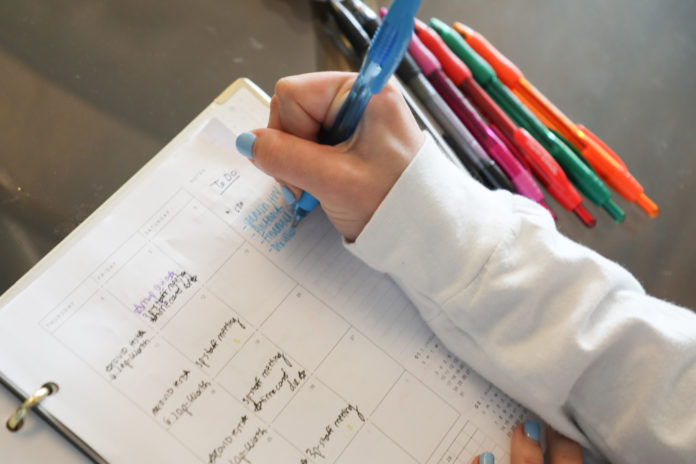
Sukhi Borse | Reporter
After a six week break, students, faculty and staff alike say they feel overwhelmed to be back on campus.
Dr. Melanie Nogalski, assistant director of programs and admissions of the Baylor interdisciplinary core, “I think this is normal to see; it’s just with everything else that is going on, the adjustment period will take longer.”
Many students are still figuring out how to balance their in-person and online blend of classes during such unprecedented times.
“It is important for everyone to understand their limitations and focus on how to make it through this period rather than trying to push to your limits,” Nogalski said. “If that means taking fewer credits, starting therapy or having all online classes, now is the time to do it.”
There are also many resources on campus for people who need help, whether it be academically, mentally, emotionally or physically.
The Baylor Counseling Center provides a resource for students when they are in need of someone to talk to. Their services include group therapy, one-on-one sessions and access to private rooms (upon request) for students who need a secure space and some time alone.
Considering the precarious situation of the ongoing pandemic, the center is providing telehealth appointments in order to ensure the safety of the students while also giving them the option of a remote appointment.
Dr. Randal W. Boldt, senior associate director and training director at the counseling center, gave his insight on ways for students to succeed this academic semester.
“I call them the five Rs,” Boldt said. “Rest, relaxation, relationships, recreation and religion. These are the aspects in which students can create a balanced life for themselves.”
It is all about balancing work with play, Boldt said. Relaxing and recreation are necessary for the well-being of the mind, body and soul. Without these, there is a risk of facing academic burn-out or mental and physical exhaustion.
Additionally, Baylor provides a vast amount of academic support programs to aid students in their understanding of class material, as well as ways for students to stay on track with their course work.
Academic support programs include services such as tutoring, learning labs, one-on-one mentoring and advising for select issues. The Paul L. Foster Success Center is located in the Sid Richardson Building on campus.
Director of Academic Support Programs Sally Firmin said her job is to help students who are feeling overwhelmed by their workload.
“It is important to look at the work in small pieces rather than looking at the big picture,” she said. “Do a little work, day by day, instead of work-bingeing for hours.”
The learning lab, specifically, helps in trying to strategize the best methods of learning catered to each individual.
Firmin said there isn’t a “one size fits all” when it comes to staying on track with schoolwork and mental health. Every person has their own schedule, which makes every student’s approach different.
“It is important to celebrate the little victories,” said Firmin. “That way when you reach the finish line, you already know that you have all the tools you need to succeed.”





